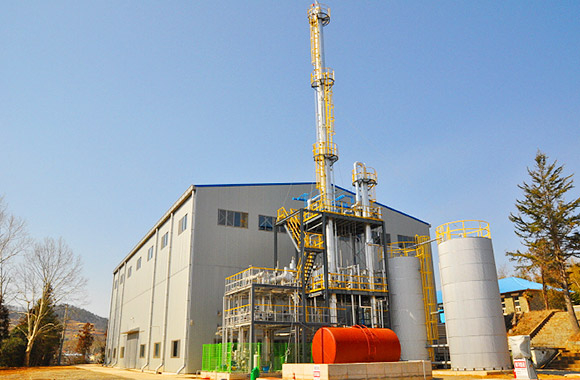Krill oil
Korean biotech firm produces krill oil with top phospholipid content
By Dec 10, 2020 (Gmt+09:00)
1
Min read
Most Read
LG Chem to sell water filter business to Glenwood PE for $692 million


Kyobo Life poised to buy Japan’s SBI Group-owned savings bank


KT&G eyes overseas M&A after rejecting activist fund's offer


StockX in merger talks with Naver’s online reseller Kream


Mirae Asset to be named Korea Post’s core real estate fund operator



South Korea’s biotechnology firm Biocorp Co. has produced krill oil containing 61% phospholipids, the highest level in the world, and has begun to commercialize the new product, the company said on Dec. 9.
Phospholipids are a type of fat present in plant and animal cells, including the shrimp-like crustacean krill. They play important roles in health and are involved in various biological processes.
Krill typically contains 40% phospholipids. Previously, the highest level of phospholipids in krill was 56%.
“The over-60% level for phospholipid content had been seen as the barrier impossible to break,” Biocorp CEO Noh Ju Wan said in a statement.
Krill oil with a phospholipid content of 61% contains more than 10 percentage points greater amounts of omega-3 fatty acids, such as EPA and DHA, than existing krill oils, Noh added.
Krill oil is becoming a popular dietary supplement as an alternative to fish oil, because it decreases swelling and lowers cholesterol.
Phospholipids are a vital component of cell membranes, which separate the interior of cells from the outside environment. Phospholipids are also needed to support the absorption of fats and fat-soluble nutrients such as omega-3 fatty acids.
Biocorp began krill oil production in 2014. It uses only flash-frozen Antarctic krill provided by two Korean fishing companies – Dongwon Corp. and Insung Corp. – and produces krill oil at its domestic plants. Further, it exclusively uses food-grade pure alcohol as an extractant to produce krill oil, unlike rival companies that use hexane or acetone in the purification process.
South Korea is the world’s third-largest krill fishing nation. The country's krill oil market was estimated at 300 billion won ($276 million) last year, led by Biocorp and Norway's Aker BioMarine in the 56%-plus phospholipid content segment.
Write to Byung-Keun Kim at bk11@hankyung.com
Yeonhee Kim edited this article.
More to Read
-
 Business & PoliticsTrump Jr. meets Korean business chiefs in back-to-back sessions
Business & PoliticsTrump Jr. meets Korean business chiefs in back-to-back sessionsApr 30, 2025 (Gmt+09:00)
-
 Korean chipmakersSamsung in talks to supply customized HBM4 to Nvidia, Broadcom, Google
Korean chipmakersSamsung in talks to supply customized HBM4 to Nvidia, Broadcom, GoogleApr 30, 2025 (Gmt+09:00)
-
 EnergyLS Cable breaks ground on $681 mn underwater cable plant in Chesapeake
EnergyLS Cable breaks ground on $681 mn underwater cable plant in ChesapeakeApr 29, 2025 (Gmt+09:00)
-
 Business & PoliticsUS tariffs add risk premium to dollar assets: Maurice Obstfeld
Business & PoliticsUS tariffs add risk premium to dollar assets: Maurice ObstfeldApr 29, 2025 (Gmt+09:00)
-

Comment 0
LOG IN


